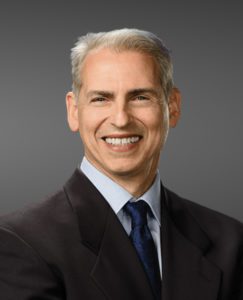A truck accident can be a truly devastating experience. The size and speed of an 80,000-pound 18-wheeler can impart violent forces in a crash, leading to life-altering or even fatal injuries. Truck accident victims deserve to pursue financial compensation and justice for the harm and losses they have suffered, including medical bills, lost income, and pain and suffering. However, an injured victim’s right to financial recovery may depend on the cause of the truck accident that harmed them and who was to blame for setting it in motion. Moreover, the cause of a truck accident can point to the parties the victim could hold responsible for their injuries. Working with a truck accident lawyer can help you determine the cause or causes of the truck accident that injured you. Your truck accident lawyer can investigate the crash to identify the party or parties responsible for your injuries and losses, then pursue your legal claims against them.
Parties Who You Can Hold Responsible for a Truck Accident

- Truck drivers
- Trucking companies
- Truck/trailer owners
- Cargo/freight brokers
- Truck mechanics
- Truck or auto part manufacturers
- Background check/drug testing companies
- Other motorists
- State and local governments
- Road construction companies
Truck Driver-related Causes of Truck Accidents
Many truck accidents occur due to truck drivers’ negligent, reckless, or careless errors. Some of the most common truck driver-related causes of 18-wheeler crashes include:Speeding
Some truck drivers drive faster than the speed limit or too fast for weather, road, or traffic conditions, often when trying to make up time after delays or to meet tight delivery deadlines. Speeding in a large commercial truck can lead to an accident because trucks do not maneuver or slow down as quickly as a smaller passenger vehicle. Truck drivers need to plan to brake, change lanes, or turn. Speeding means drivers have less opportunity to maneuver safely or react to an emergency ahead of them. Speeding also increases the risk that a truck driver may lose control of their vehicle, especially on slick roads, steep inclines, or banked curves. Speeding can also increase the severity of a truck accident. While an 18-wheeler’s weight means that these vehicles impart significant forces in a collision, these forces multiply the faster a truck travels.Tailgating
Tailgating by a truck driver is a frequent cause of rear-end collisions. Tailgating refers to the practice of following another vehicle too closely. Trucks cannot slow down as quickly as smaller passenger vehicles. A truck’s stopping distance increases on slick or icy roads. Thus, a truck driver who tailgates another vehicle poses a substantial risk of causing a rear-end crash.Reckless or Aggressive Driving
Reckless driving can include excessive speeding or weaving in and out of heavy traffic. A truck driver who engages in reckless driving risks causing an accident by colliding with another vehicle while speeding or trying to weave a large truck through traffic. Aggressive driving—which is also called road rage—may also lead to a truck accident if a truck driver engages in highly unsafe behaviors such as tailgating or brake checking another vehicle, or forcing another vehicle out of a lane or off the road as the other driver tries to avoid a collision.Unsafe Turns and Lane Changes
A truck driver may make an unsafe turn or lane change by failing to signal or check mirrors and blind spots before turning or changing lanes. Doing so puts other vehicles on the road at risk of sideswipe collisions. A truck driver may also hit cyclists and pedestrians if the driver fails to check mirrors for oncoming traffic before turning. Truck drivers may also cause an accident by making an unsafe wide turn on narrow surface streets. Large trucks may need to swing wide left before turning right or may turn into the oncoming lanes of traffic when turning right. A truck driver who fails to check if traffic is in the left or oncoming lane may collide with a vehicle when making a wide turn.Disregarding Traffic Signals
Truck drivers can also cause accidents by disregarding traffic signs and signals such as stop signs, yield signs, pedestrian crossing lights, or traffic lights. This can lead to pedestrian accidents or intersection accidents, including T-bone collisions. Truck drivers may run through traffic signs or lights when rushing to make a delivery deadline or because they are unfamiliar with local roads and traffic patterns.Distracted Driving
Truck drivers may face many distractions behind the wheel, including using cell phones or CB radios, adjusting the radio, climate control, or navigation system, eating or drinking, or reaching around the cab for an object. Because truck drivers can spend many hours on the highway, they may turn to their cell phones, books, or magazines to help pass the time. Truck drivers might also become distracted by daydreaming on long trips.Drowsy/Fatigued Driving
Federal and state regulations limit truck drivers’ hours on duty and behind the wheel to help curb the risk of drowsy or fatigued driving. However, truck drivers still work long hours and can become tired or drowsy at the end of their duty shifts, especially if drivers choose to drive at night to avoid daytime traffic. But some drivers inadvertently or intentionally exceed their hours-of-service restrictions, increasing their chances of becoming drowsy or tired while driving. Drowsy and fatigued driving can have many of the same effects on a driver as intoxicated driving, including altered perception, impaired judgment, and slower reaction time.Intoxicated Driving
Some truck drivers turn to alcohol and drugs to help cope with extended hours on the road, including stimulant drugs to stay alert during long shifts or while driving at night. Driving under the influence of alcohol or narcotics poses a substantial danger, as even mild intoxication can impair a truck driver’s ability to operate a complex vehicle like an 18-wheeler.Driver Inexperience
Truck drivers must undergo specialized instruction and training to operate various commercial trucks. A truck driver who has not received the required training or lacks experience with the type of truck they are driving is at risk of committing an error while operating their vehicle and causing an accident.Unfamiliarity With Routes or Local Roads
Truck drivers who lack familiarity with their delivery routes or with local roads at their destinations pose a risk of causing accidents. An accident may occur because the truck driver fails to follow traffic patterns on local roads or because the driver goes the wrong way on a highway access ramp or one-way street.Failure to Perform Vehicle/Cargo Inspections
Truck drivers must inspect their vehicles and cargo every time they set off after stopping for a break or off-duty period. Failing to do so can lead to an accident. The driver might miss a potential mechanical issue with their vehicle or fail to see improperly loaded cargo.Trucking Company-related Causes of Truck Accidents
Trucking companies, including cargo and freight broker companies that load cargo into trucks or trailers, can also be responsible for truck accidents. Some of the company-related causes of crashes include:Negligent Hiring, Training, or Supervision of Drivers
Trucking companies typically perform background checks, alcohol/drug screening, and medical fitness exams on prospective truck drivers. Trucking companies should also ensure that their drivers have the training and certifications to operate certain vehicles or haul specific cargo. Companies should also have policies to monitor drivers’ performances and act in response to dangerous or unsafe behaviors by drivers. Trucking companies who negligently hire or supervise a driver who causes a truck accident may be liable for the crash.Ordering Drivers To Engage in Unsafe Behaviors
Trucking companies can also cause accidents by ordering or encouraging drivers to undertake illegal or unsafe behaviors, such as speeding, reckless driving, skipping vehicle and cargo inspections, or exceeding hours-of-service limitations.Inadequate Vehicle Maintenance
Trucking companies and truck owners must regularly inspect their vehicles and perform all recommended maintenance and necessary repairs. Trucking companies may be responsible for truck accidents caused by mechanical failure in trucks resulting from deferred or improperly performed maintenance.Improper Loading of Cargo
 Trucking companies or cargo and freight brokers can cause truck accidents by improperly loading cargo into trucks or trailers. Proper cargo loading should involve balancing cargo and loading heavier items below lighter items. Cargo loads should not exceed the vehicle’s hauling capacity.
Overloading or improperly balancing cargo weight can negatively affect the truck driver’s ability to control their vehicle. In addition, companies must secure cargo to prevent it from shifting during travel. Shifting cargo can cause a driver to lose control of the truck and suffer a rollover or jackknife accident. Shifting cargo may also fall from the truck onto other vehicles or roadways.
Trucking companies or cargo and freight brokers can cause truck accidents by improperly loading cargo into trucks or trailers. Proper cargo loading should involve balancing cargo and loading heavier items below lighter items. Cargo loads should not exceed the vehicle’s hauling capacity.
Overloading or improperly balancing cargo weight can negatively affect the truck driver’s ability to control their vehicle. In addition, companies must secure cargo to prevent it from shifting during travel. Shifting cargo can cause a driver to lose control of the truck and suffer a rollover or jackknife accident. Shifting cargo may also fall from the truck onto other vehicles or roadways.